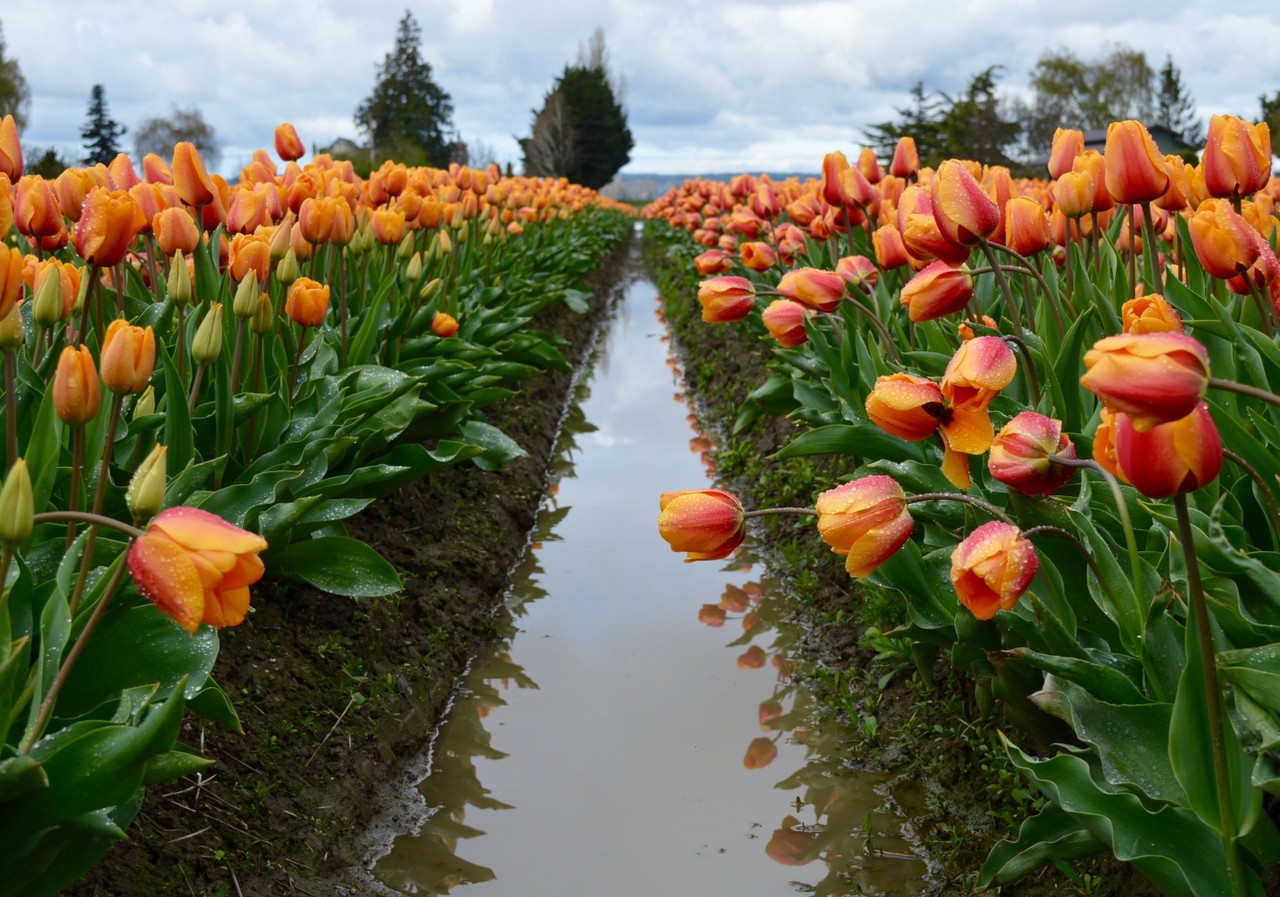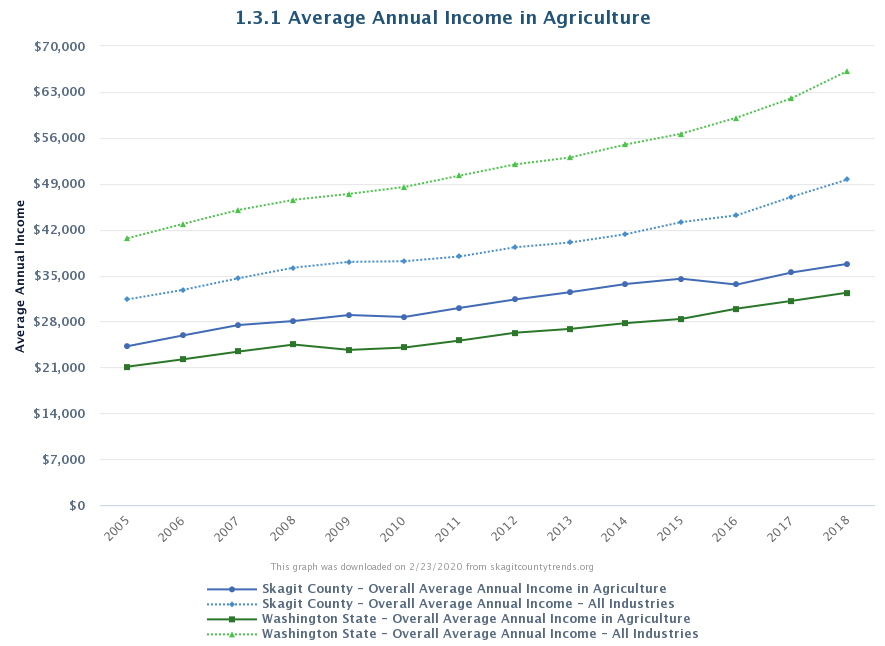Agriculture Industry in Skagit County
Overview
One of the most fertile region in the United States is Skagit County. It is known for its different bounty of crops, agricultural products, forestry products and aquaculture. People, living in Skagit County engage in local food movement and agriculture sustainability initiatives in the Pacific Northwest. Thanks to these initiatives that combine research and technology, producing new jobs, the local agricultural industry is developing and supports the economy of Skagit County.
Skagit Valley has 150 years of farming history and now plays a significant role in the agricultural industry in Puget Sound.
Short history
The first big crop of cultivated potatoes the Skagit Valley saw in 1853. Markets in Seattle were the first places that started selling oats from Skagit County. It was sent to markets in 1870. By 1908 the Skagit Valley was the biggest producer of oats in the United States. For over 150 years, lots of farmers have been supplying the whole region, all states and even the entire world with nearly every type of crop.
Present times
Nowadays, the Skagit Valley is the biggest supplier of table beet seed (95%) and spinach seed (75%) in the United States. It is also supplying nearly 8% of the spinach seed in all the markets worldwide. Approximately 25% of the world’s cabbage seed and 50% of the world’s beet seed are produced by Skagit Valley farmers. Additionally, 95% of the red potatoes grown in Washington State are from Skagit County.
In the past, the Skagit County processing industry revolved around green peas. 2010 marked the first year since the early 1900s that no commercial pea processing took place in Skagit County. As a result, growers have been experimenting with new crops in hopes of finding the next niche. Potatoes have become a significant crop with acreage expanding significantly over the past fifteen years. Other plants, such as cole crops, vegetable seed crops, cucumbers, flower bulbs, and small fruits contribute less in gross dollars but are very important. The net return to the grower on these crops is relatively high, and they provide diversification and many jobs.
One of the most beautiful things that Skagit Valley is known for its vast fields of tulips, daffodils and iris bulbs. No state in America produces such amount of flowers as Skagit Valley does. Moreover, about 50 million of cut flowers are grown in Skagit Valley greenhouses.
Skagit Valley agricultural industry plays a prominent and essential role in the development of the US economy. The environmental products and services that are provided by the farming fields include the relationship of farmland to climate control, water quality, biodiversity, flood control, open space, wildlife habitat, and quality of life.
Skagit Valley strong points
- Thanks to Skagit Farmland the Skagit Delta has one of the largest and most diverse concentrations of wintering raptors on the continent.
- Thanks to Skagit Farmland the Skagit Delta supports 70% of Puget Sound’ shorebirds during their migration.
- Thanks to Skagit Farmland the Skagit Delta is one of the essential waterfowl wintering areas in the Pacific Northwest.
Organic farming
Organic acreage in Skagit County is increasing. In 2013 there were no additional certified
organic farmers added to the area; however, lands increased from 5,627 acres in certified organic production in 2011 to 6,710 acres in 2013. Organic production in Skagit County is valued at $14,238,853, making it the highest organic agricultural producing county in Western Washington.
WSU Skagit County Extension has been teaching the Cultivating Success Beginning Farmer
and Rancher Course and the Agricultural Entrepreneur bilingual 12-week course in partnership with Skagit Valley College since 2006. To date, 365 students have been educated on organic agricultural production.
Quick facts
- There are two remaining processing companies in Skagit County, Sakuma Brothers and Gielow Pickles.
- There are two primary ag-supply dealers in the Valley: Skagit Farmers Supply and Wilbur-Ellis provide supplies and services to farmers.
- Skagit County ranks fifth in dairy production in Washington State.
- About 10,000 Trumpeter and Tundra swans, 100,000 Snow geese, and thousands more of mallard and other dabbling ducks utilize Skagit farmland for food and habitat. Skagit County is host to one of the highest concentrations of raptors, which also use farmland in North America.
Every year since 1999, approximately 20,000 visitors enjoy the Skagit Valley Festival of Family Farms.

